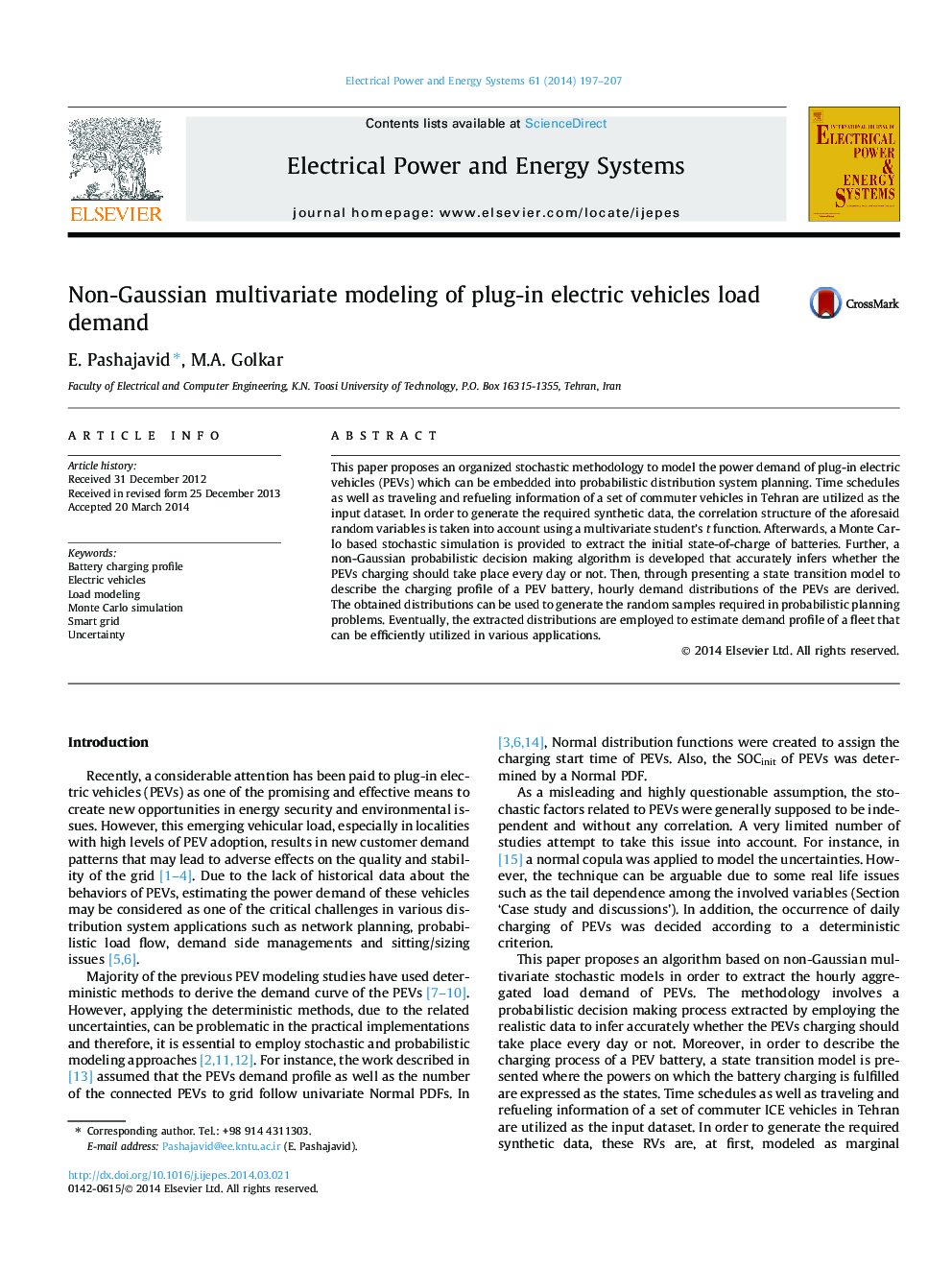| Article ID | Journal | Published Year | Pages | File Type |
|---|---|---|---|---|
| 6860306 | International Journal of Electrical Power & Energy Systems | 2014 | 11 Pages |
Abstract
This paper proposes an organized stochastic methodology to model the power demand of plug-in electric vehicles (PEVs) which can be embedded into probabilistic distribution system planning. Time schedules as well as traveling and refueling information of a set of commuter vehicles in Tehran are utilized as the input dataset. In order to generate the required synthetic data, the correlation structure of the aforesaid random variables is taken into account using a multivariate student's t function. Afterwards, a Monte Carlo based stochastic simulation is provided to extract the initial state-of-charge of batteries. Further, a non-Gaussian probabilistic decision making algorithm is developed that accurately infers whether the PEVs charging should take place every day or not. Then, through presenting a state transition model to describe the charging profile of a PEV battery, hourly demand distributions of the PEVs are derived. The obtained distributions can be used to generate the random samples required in probabilistic planning problems. Eventually, the extracted distributions are employed to estimate demand profile of a fleet that can be efficiently utilized in various applications.
Related Topics
Physical Sciences and Engineering
Computer Science
Artificial Intelligence
Authors
E. Pashajavid, M.A. Golkar,
